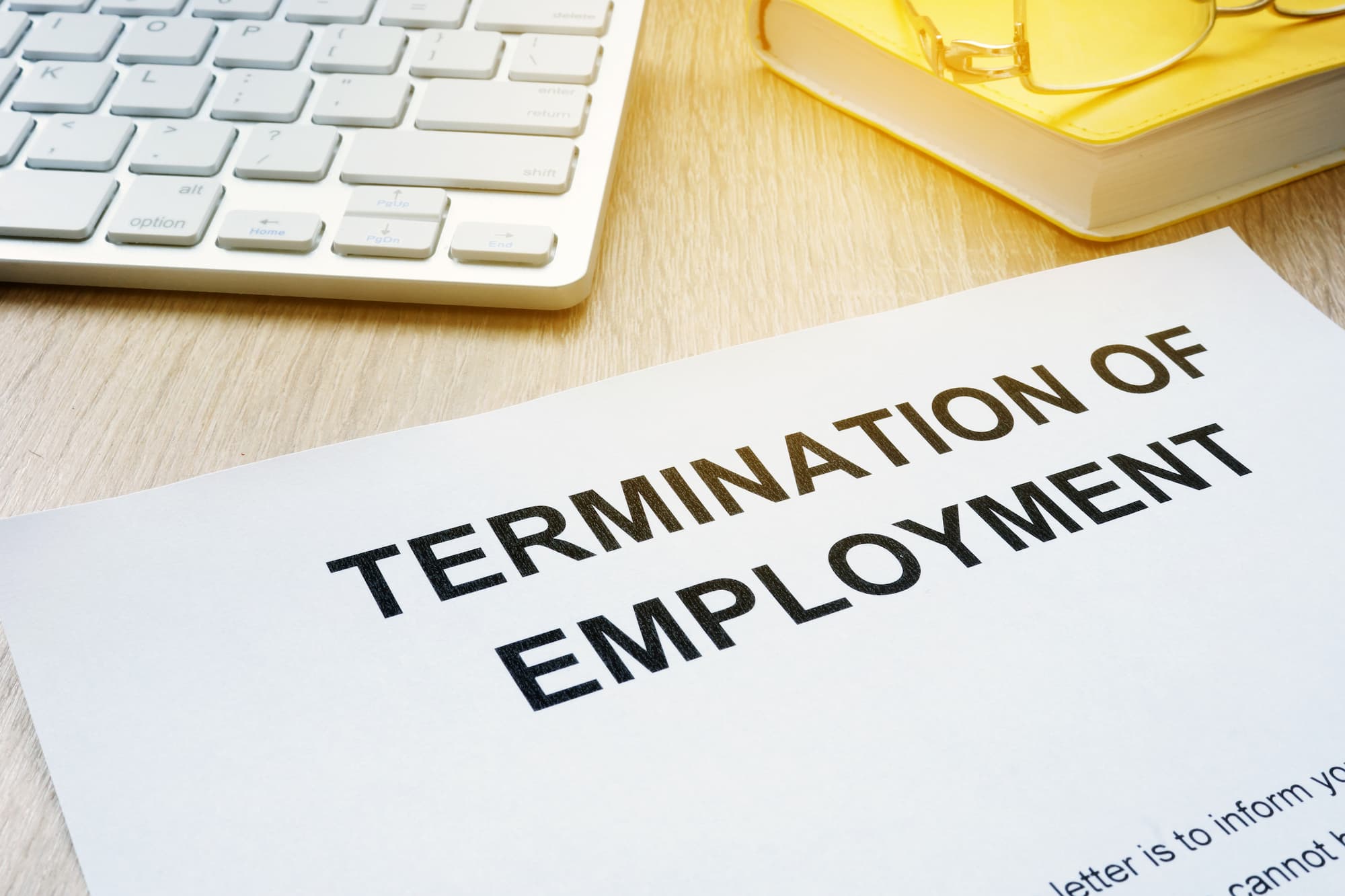Impact of COVID-19 on Wrongful Dismissal Damages: A Review of Recent Cases
Reading Time: 5 minutesThe impact of the COVID-19 pandemic on the economy and job security in various sectors has invariably led to the assumption that courts will award lengthier notice periods in wrongful dismissal cases. While there has been limited case law directly addressing this issue, recent jurisprudence from across the country offers some insights on how the courts are treating arguments related to the impact of the pandemic on wrongful dismissal damages.
In Mohammed v. Dexterra Integrated Facilities Management, 2020 BCSC 2008, Mr. Jafeef Mohammed was terminated from his employment without cause on November 11, 2019. Mr. Mohammed was 51 years old at the time and was employed as a supervisor of Dexterra’s cleaning staff at a shopping mall. Mr. Mohammed was unable to secure a full time, permanent job following his termination, though he was employed with another cleaning company for 2 short months between November 2019 and January 2020. No explanation was proffered as to why Mr. Mohammed lost his subsequent job.
At trial, Mr. Mohammed argued that he had been unable to secure alternative employment due to the COVID-19 pandemic. His evidence that the pandemic has negatively affected his ability to find work was unchallenged by Dexterra who did not cross-examine Mr. Mohammed on this and did not tender any evidence to demonstrate that other job opportunities were available to him.
Taking into account all the circumstances, the court awarded Mr. Mohammed 5 months of reasonable notice. In coming to its decision, Justice Walker noted that:
Notice must be reasonable in the individual circumstances of the case. It is determined as at the date of termination of employment […] Consequently, economic circumstances at the time of termination may be a factor […] Those arising post-termination, such as those from the COVID-19 pandemic, can be relevant to mitigation if they impact the availability of equivalent employment (para. 27).
Although the court did not directly comment on what, if any impact, the COVID-19 pandemic had on Mr. Mohammed’s entitlement to length of reasonable notice, Justice Walker subsequently found that Mr. Mohammed had discharged his duty to seek new employment. It is noteworthy in this case that the employer did not challenge the employee’s assertion that his mitigation efforts were hindered by a poor job market owing to the pandemic. It does not appear that Dexterra offered any evidence to prove a failure to mitigate.
In Iriotakis v. Peninsula Employment Services Limited, 2021 ONSC 998, the plaintiff, Mr. Peter Iriotakis, was employed as a Business Development Manager at Penninsula Employment Services, a company offering human resources and health and safety product and services. As part of his compensation, Mr. Iriotakis received a base salary of $60,000 and a commission commensurate with his sales. Mr. Irotakis’ compensation for the last full year of his employment (2019) was $145,186.30
Mr. Iriotakis was terminated on March 25, 2020 after approximately 2 years of service. He was 56 years old at the time.
The court found that Mr. Iriotakis was entitled to 3 months of notice, and that the COVID-19 pandemic increased the notice period that Mr. Iriotakis would otherwise have been entitled to. Justice Dunphy stated:
I have little doubt that the pandemic has had some influence upon Mr. Iriotakis’ job search and would have been reasonably expected to do so at the time his employment was terminated in late March 2020. However, it must also be borne in mind that the impact of the pandemic on the economy in general and on the job market, in particular, was highly speculative and uncertain both as to degree and to duration at the time Mr. Iriotakis’ employment was terminated.
I do agree that the plaintiff’s age and the uncertainties in the job market at the time of termination both serve to tilt the period of reasonable notice away from the fairly short period of notice that his short period of service might otherwise indicate. However, these factors do not apply to the exclusion of the others. A balanced approach is what is called for. (Paras 19-22)
The employer also asked the court to deduct the Canada Emergency Response Benefit (“CERB”) payments received by Mr. Iriotakis during the notice period. However, Jusice Dunphy declined to do so and noted that CERB was an ad hoc programme and neither employer nor employee can be said to have paid into the program or “earned” an entitlement over time beyond their general status as taxpayers of Canada. Given that the level of benefit paid (approximately $2,000 per month) was considerably below the base salary previously earned by Mr. Iriotakis, Justice Dunphy held that on the balance “and on these facts”, it would not be equitable to reduce Mr. Iriotakis’ entitlements to damages from his former employer by the amount of CERB given his limited entitlements from the employer post-termination relative to his actual pre-termination earnings.
Most recently, in Currie v. Nylene Canada Inc., 2021 ONSC 1922, the Ontario Superior Court of Justice considered an employer’s argument that the employee’s entitlement to reasonable notice should be reduced on account of insufficient mitigation efforts in mid to late 2020.
Ms. Currie was terminated from her employment after 39 years of service. She had been employed with Nylene Canada and its predecessors since the age of 18. The court held that Ms. Currie had demonstrated the existence of exceptional circumstances given her lengthy tenure and commitment to the employer. She was awarded 26 months of notice.
With regard to mitigation efforts, Ms. Currie testified that she applied to some 145 opportunities since her termination in December 2018. Despite her efforts, she remained unemployed at the time of trial.
The employer argued that Ms. Currie’s award for reasonable notice should reduced by two months because Ms. Currie did not provide any evidence of job applications for the months of May, June, September and November 2020. The court declined to do so and stated:
It cannot be disputed that, as the result of the pandemic, 2020 has been an extraordinarily different and difficult year for many, including employers. It is reasonable to say that during this past year, employers may have had to downsize and not expand, meaning that there are fewer job opportunities available. Even if it is accurate to say that Ms. Currie did not make any applications during the stated months, looking at all of her efforts since termination, I find that they have been more than reasonable. I do not find it appropriate to reduce the notice period by any amount of time. (Para 111)
Takeaways:
These early decisions underscore the principle that an employee’s entitlement to damages in a wrongful dismissal action is a fact specific inquiry and will depend on the whole of the circumstances. While the COVID-19 pandemic may tilt the balance in favour of an employee receiving reasonable notice damages on the higher end of the spectrum, it is not a foregone conclusion that this will always be the result. As was the case in Mohammed, the pandemic may only serve to add context to the plaintiff’s job-hunting efforts and may not directly affect entitlement to reasonable notice. The employee’s specific industry and situation will determine how the courts will treat the impact of the pandemic.
Further, while the courts have acknowledged that the COVID-19 pandemic might affect the duty to mitigate if the pandemic negatively affects the ability to find new employment, employees should still be prepared to demonstrate reasonable efforts to seek alternative employment. As was the case in Currie, the court will look to the totality of the evidence with regard to mitigation efforts when deciding what impact the pandemic has had on an employee’s ability to mitigate his or her losses.
While the decisions to date have not highlighted the fact that the pandemic has had varying impacts on the economy with some sectors actually performing better than normal during the pandemic, we expect employers to challenge the argument that COVID-19 has negatively affected all employee’s ability to seek re-employment.
With regard to collateral pandemic benefits, although the court in Iriotakis notes that its decision was very fact-specific, we expect that CERB payments will be treated akin to Employment Insurance payments and will not be deductible from reasonable notice awards.
-
Parmar v. Tribe Management Inc., 2022 BCSC 1675 is the first civil court decision to tackle whether an unpaid leave of absence for noncompliance with an employer’s mandatory vaccination policy can be considered constructive dismissal. The issue before the Court was whether Tribe Management Inc.’s decision to place Ms. Parmar on an unpaid leave of absence was reasonable following the implementation of a mandatory vaccination policy given the circumstances of the COVID-19 pandemic at the time. Ms. Parmar refused to be vaccinated due to choice. She did not apply to her employer to be exempt from the mandatory vaccination policy based on medical or religious reasons. The BC Supreme Court found that it was not a constructive dismissal. Instead, it found that Ms. Parmar had repudiated the employment contract. As a result, the claim was dismissed, and Ms. Parmar was not entitled to any damages.
-
The Court of Appeal decision of Café La Foret ltd v. Cho, 2023 BCCA 354 is a reminder to all employers that even misconduct such as sexual harassment will not always justify cause for dismissal. Context plays a big role in determining whether an employer has cause for dismissal.







